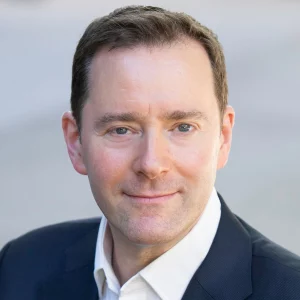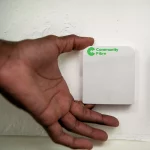Sponsored Links
Tiscali Criticises BBC's iPlayer Stance
Posted: 09th Apr, 2008 By: MarkJ
ISP Tiscali UK has hit back at last weeks blog post by the BBC's Director of Future Media and Technology, Ashley Highfield, which threatened to name and shame providers that restricted access to its iPlayer (IPTV) service (original news).
Tiscali's Simon Gunter again called upon the BBC to contribute towards the costs its iPlayer service would incur upon ISPs, claiming that the broadcaster did not understand the issues involved:
We dont recall the BBC ever saying it would blacklist ISPs that restricted access to its iPlayer service, merely that they would be identified in public. Ironically providers should be informing their customers about any service restrictions prior to signup, though many fail to do so.
Tiscali may take exception to "a publicly-funded organisation telling a commercial body how to run its business", yet that does not mean to say their position is correct. Content is what drives the Internet, from websites to e-mails and video sharing sites and services such as YouTube and iPlayer.
ISPs are the ones that must adjust their services and pricing around this ever evolving medium and to suggest that content providers contribute towards the costs is verging on ridiculous. Naturally some providers have designed themselves around tight economic models of budget level pricing, which afford them precious little room to manoeuvre. The situation they are in is very much self-created.
Meanwhile the BBC has agreed to build a Content Deliver Network (CDN) closer to ISP servers, which will help to cut some costs. Sooner or later though, some of the cheapest ISPs will need to adapt themselves to the modern market and doing so could result in more expensive packages or greater restrictions, at least until the cost of bandwidth falls again. More @ BBC News Online.
Tiscali's Simon Gunter again called upon the BBC to contribute towards the costs its iPlayer service would incur upon ISPs, claiming that the broadcaster did not understand the issues involved:
"The question is about whether we invest in extra capacity or go to the consumer and ask them to pay a BBC tax. Inflammatory comments about blacklisting ISPs do not help. There seems to be a lack of understanding about how networks are built. Either we are not explaining it properly or it is falling on deaf ears."
We dont recall the BBC ever saying it would blacklist ISPs that restricted access to its iPlayer service, merely that they would be identified in public. Ironically providers should be informing their customers about any service restrictions prior to signup, though many fail to do so.
Tiscali may take exception to "a publicly-funded organisation telling a commercial body how to run its business", yet that does not mean to say their position is correct. Content is what drives the Internet, from websites to e-mails and video sharing sites and services such as YouTube and iPlayer.
ISPs are the ones that must adjust their services and pricing around this ever evolving medium and to suggest that content providers contribute towards the costs is verging on ridiculous. Naturally some providers have designed themselves around tight economic models of budget level pricing, which afford them precious little room to manoeuvre. The situation they are in is very much self-created.
Meanwhile the BBC has agreed to build a Content Deliver Network (CDN) closer to ISP servers, which will help to cut some costs. Sooner or later though, some of the cheapest ISPs will need to adapt themselves to the modern market and doing so could result in more expensive packages or greater restrictions, at least until the cost of bandwidth falls again. More @ BBC News Online.
Search ISP News
Search ISP Listings
Search ISP Reviews
Latest UK ISP News








Cheap BIG ISPs for 100Mbps+
150,000+ Customers | View More ISPs
Cheapest ISPs for 100Mbps+
Modest Availability | View More ISPs
Latest UK ISP News
Helpful ISP Guides and Tips
Sponsored Links
The Top 15 Category Tags
- FTTP (6722)
- BT (3863)
- Politics (3036)
- Business (2736)
- Openreach (2629)
- Building Digital UK (2488)
- Mobile Broadband (2434)
- FTTC (2132)
- Statistics (2102)
- 4G (2062)
- Virgin Media (1997)
- Ofcom Regulation (1761)
- 5G (1692)
- Fibre Optic (1587)
- Wireless Internet (1581)
Sponsored
Copyright © 1999 to Present - ISPreview.co.uk - All Rights Reserved - Terms , Privacy and Cookie Policy , Links , Website Rules






























